An Employer of Record (EOR) is a service provider that legally employs workers on behalf of another company, handling all the administrative and compliance-related tasks associated with employment. In today’s increasingly global and remote work environment, EORs have become essential for businesses looking to hire talent across borders quickly and efficiently without setting up legal entities in every country. This growing trend enables companies to expand their workforce internationally while avoiding complex legal and regulatory hurdles. This post serves as a complete guide to understanding what an Employer of Record is, how it works, and why it could be the perfect solution for your global hiring needs.
What is an Employer of Record?
An Employer of Record (EOR) refers to a third party business organization that legally signs up the workers on behalf of another business. Although the client company dictates the day-to-day work and duties of the employee, they are all dealt with by the EOR who takes care of all formal employment issues, including payroll, filing taxes, adherence to employment laws, and issuing employment contracts. A case example is: when a U.S based company is interested in hiring a software developer in Germany without establishing a local business, it can collaborate with an EOR firm established in Germany to employ the developer legally. It is critical to mention that an EOR is neither a staffing agency that usually recruits and introduces temporary workers, nor a traditional HR outsourcing company. There are no greater legal responsibilities, but rather an EOR steps into the shoes of the employer and has all the legal responsibility, giving the businesses an excellent opportunity to establish large businesses around the world without having to worry about legal layers at the local levels.
How Does an Employer of Record Work?
The Employer of Record (EOR) simplifies the global recruitment procedure by taking up all the legal and administrative work associated with employment. The usual way the process starts is a company chooses a candidate in a foreign country and collaborates with an EOR that has operations in the region. The formal procedure carried out by the EOR includes the permanent hire of the employee on behalf of the client company including the preparation of the contract, employee on-boarding and documentation in compliance with the local laws. After a worker has been hired, the EOR can take care of payroll processing and deduction of payment of income taxes, social security contributions, and benefits. It also does not exclude a hundred percent compliance with local employment regulations, which minimizes the possibility of being involved in legal disputes. There are three stakeholders in this set up, the EOR (the legal employer), the client company (the management) and the employee (who works under the instruction of the client company). This framework enables organizations to expand internationally with no need to establish an operating entity in each nation.
Key Responsibilities of an Employer of Record
Employer of Record (EOR) assumes a broad scope of legal and administrative obligations to facilitate a compliance-friendly, worry-free cross-border employment. Payroll processing is one of the essence of functions that entails and involves proper payment of salary, deduction of taxes and even currency conversions when it occurs. The EOR also prepares and manages employment contracts ensuring that they are compliant with local labor laws and the terms that have been agreed between the client company and the employee. Another significant job is the compliance to tax and labor laws because the EOR must put in place all the statutorily appropriate contributions, withholding and employment practices which obey the rules and regulations of the country to which the employee belongs. Moreover, the EOR manages employee benefits and insurance, including the health coverage, paid leaves, and retirement contribution. In the event of such a requirement, EOR also takes care of the termination process, making sure that all the exit formalities are within the law, notice, severance, and documentation. This end-to-end model enables companies to work internationally; they can recruit with fewer legal risks and at a lower technological complexity.
Benefits of Using an Employer of Record
The collaboration with an Employer of Record (EOR) has a great number of benefits to anyone intent on going international without establishing a foreign firm. Among the greatest advantages lies its speedy global talent acquisition-companies can recruit talent in overseas destinations in days instead of months. An EOR, too, prevents significant effect on the legal risk by satisfying fully to local employment laws, taxes, and labour regulations. This assures the companies avoidance of fines, penalties or even law suits. The EOR assumes the complicated regulatory duties with simplified global compliance leaving the internal teams relieved of operating in foreign legal jurisdictions. It is also relatively a cheaper alternative to creating a legal entity in each country where it is planning expansion, thus it helps save costs in registration, legal services, and infrastructure. Above all, when an EOR is used, companies are able to concentrate on their core business activities like expansion, product development, and management of talent because it manages the backend activities related to employment.
Employer of Record vs. PEO (Professional Employer Organization)
While both an Employer of Record (EOR) and a Professional Employer Organization (PEO) help businesses manage HR tasks, there are key differences in how they operate. An EOR becomes the legal employer of the worker, assuming all responsibility for compliance, payroll, and employment contracts—especially useful when hiring in countries where you don’t have a local entity. A PEO, on the other hand, enters into a co-employment relationship with your company, which requires you to already have a legal presence in the country. The PEO handles HR functions, but your company still holds legal responsibility for the employee. Here’s a quick comparison:
Key Differences: | EOR | PEO |
Legal Entity Requirement | No local entity needed | Requires local entity |
Employment Responsibility | EOR is the legal employer | Co-employment with shared responsibility |
Best For | Hiring in new countries without an entity | Managing HR for existing operations in-country |
Risks and Considerations When Choosing an EOR
Although Employer of Record (EOR) may be an easy method of conducting international employment, it is best to be aware of the pitfalls and factors to put into consideration. Global legal complexity is one of them: labor laws differ significantly among countries, and however experienced an EOR is, there will be times when the company faces difficulty getting the local rules straight or does not keep up with latest local developments. The other reason is the transparency of the costs; there are instances where certain EOR providers have responses in the fine print or can cost inconsistencies, it is important to check contracts very well and make sure that every service or product is listed. Privacy of data is another serious problem, particularly, when dealing with employee records in different countries. The EOR will have to adhere to the international data protection laws, including GDPR, to protect sensitive data. Finally, it is also important to select a credible provider of EOR. service, coverage and the legal expertise of providers might not be on the same level, so it becomes the obligation of a business to vet a partner properly, check clients reviews, and confirm compliance guidelines prior to signing a contract.
How to Choose the Right Employer of Record Provider
The choice of Employer of Record (EOR) provider is a decisive step towards smooth and compliant global hiring. Businesses ought to adopt a clean list of crucial requirements in order to settle on the most suitable option. First is the global coverage, you should make sure that the provider works in all countries where you are going to hire and knows the local legislation very well. Minor experience also matters as the provider with a background related to a field that you are can help you understand your workforce requirements better. Make sure that the EOR is highly compliant and that they have a history of keeping abreast with respect to tax legislations, labor regulations and legal changes in every country. Trustworthy customer care is yet another consideration; you will be glad when there is someone to take you through the problem and to be on the go with an informative response. Lastly, determine the technology and system of the provider- a contemporary, convenient system employing payroll, documentation, and employee management can enhance workflow and visibility in the entirety of the employment cycle drastically.
Conclusion
An Employer of Record (EOR) plays a vital role in helping companies expand internationally without the burden of establishing a legal entity in each country. By taking on the legal responsibilities of employment—such as payroll, tax compliance, benefits, and contracts—an EOR allows businesses to focus on growth while ensuring full regulatory compliance. Whether you’re looking to hire remote employees or build a global team, partnering with an EOR offers a faster, safer, and more cost-effective solution. The benefits are clear: quicker market entry, reduced legal risk, and simplified HR operations. Explore trusted Employer of Record services today to streamline your international hiring and unlock access to top global talent.





